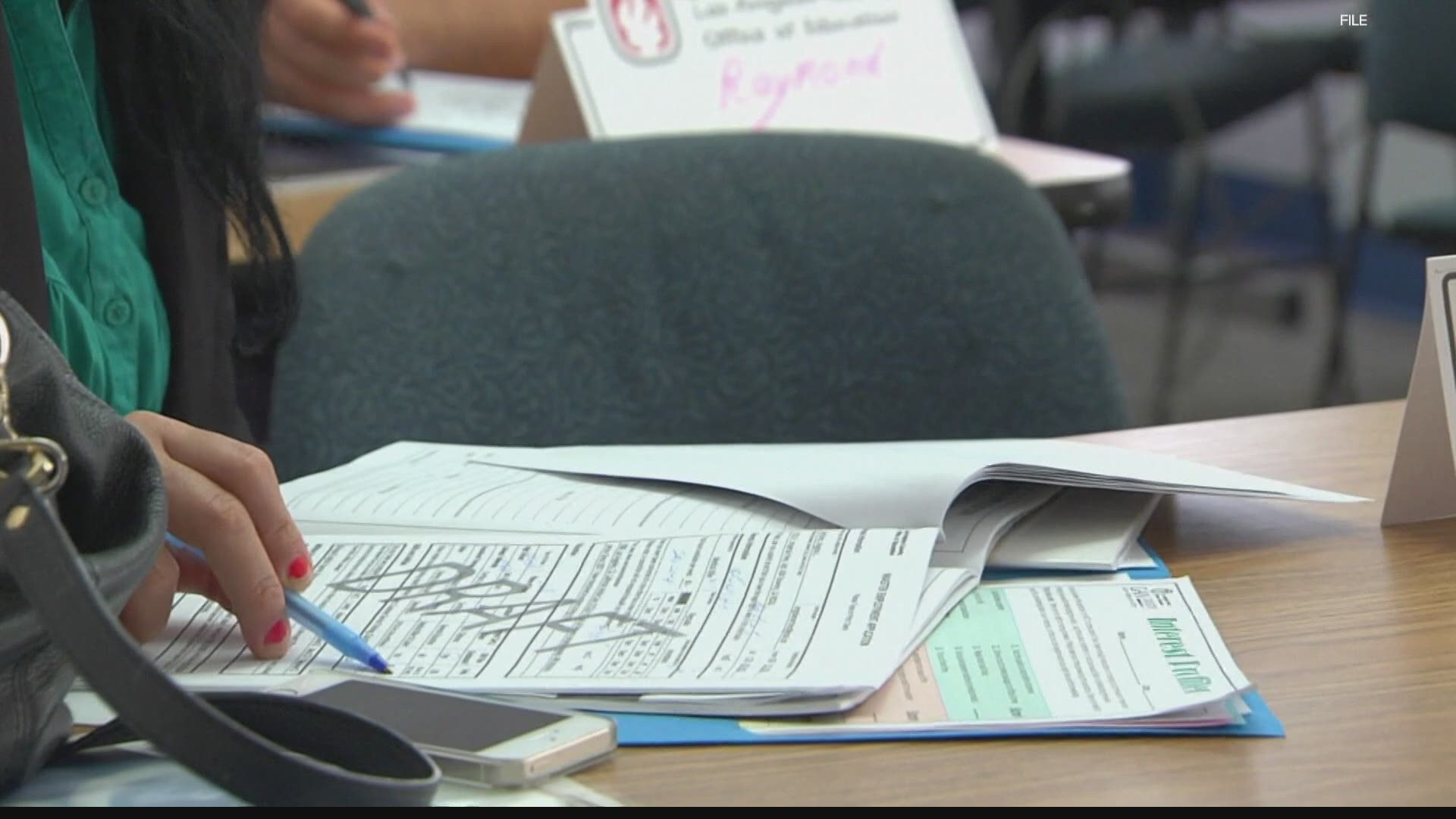INDIANAPOLIS — America lost 156,000 jobs in December. Every single one of those jobs belonged to a woman, according to the National Women’s Law Center.
“There were 140,000 jobs lost. Women lost 156,000 (jobs) so they technically lost 111 percent of the jobs that were lost because men gained 16,000 (jobs),” said Jasmine Tucker, Director of Research at the National Women's Law Center.
“So you see the headlines, 140,000 jobs were lost last month, all of them belonged to women,” said Tucker.
The economic impact of the pandemic is “far worse than the global financial crisis” of 2008, according to the International Monetary Fund (IMF).
A University of Southern California Study predicts America could lose $3 trillion to $4 trillion in gross domestic product over the next two years. The burden of this impact is being carried on the backs and shoulders of women.
At the start of the pandemic, Tekisha Collins, who had found herself continuously employed for more than six years, received a call he wasn’t expecting.
“I got a call on a Sunday at two o’clock like, 'today is your last day,'” said Collins.
At the time, Collins was working in HR, but due to cancellations of major events in Indianapolis, her employer “decided to eliminate positions and my position was one of them,” she said.
She said she noticed the very next day “everything started to slowly shut down, you saw the impact that was happening.”
E-learning has put a strain on childcare concerns for many families, but it’s not the only reason women are being “shoved” out of the workforce, according to the National Women’s Law Center.
“There were some female-dominated sectors that were getting hit initially (i.e. hospitality and service). But even in industries were they’re not dominating, they’re losing disproportionately,” said Tucker. “Employers have long been racist and sexist and ageist, so I think they’re making some choices about who they’re going to let go.”
Prior to the pandemic “women reached a labor force participation rate that we had never seen before, and now we’re at 1988 level, so we wiped out a generation of gain,” said Tucker.
Gender gap in wages
It’s no secret that, on average, women are paid less than men.
The World Economic Forum (WEF) predicted it would take 202 years to close the gender gap in wages. For every dollar a man earns, on average, a woman is paid 54 cents according to the WEF. “Experts have calculated this gap in a multitude of ways, but the varying calculations point to a consensus: women consistently earn less than men, and the gap is wider for most women of color,” according to the Center for American Progress.
“Indiana has, for a number of years (prior to the pandemic), had a much larger wage gap than the rest of the nation,” said Erin Macey, senior policy analyst for the Indiana Institute for Working Families.
But the wage gap sets women at a disadvantage because lower wages means they are more likely to have less in savings.
“The wage gap has robbed women of their ability to weather this storm,” said Tucker. She said that because of that, women will be more likely to take the first job their offered, whereas men might have more of a cushion to wait an additional month for a better salary offer.
And historically, Black, Latino and Native women in America have been paid even less than white women.
Minorities feel the brunt
The unemployment rate for minority women is now 1.7% higher than it was before the pandemic, according to the National Women’s Law Center.
“Do you see this face? I’m not shocked,” said Collins.
Re-entering the workforce
Two out of every five unemployed women 20 and over have been unemployed for six months or longer, according to the National Women’s Law Center.
“Post-Great Recession, from 2009-2014, Black women saw a double-digit employment rate for five years. White men? Zero months,” said Tucker.
“We’re already starting to see some of those trends,” said Tucker. She said just as minority women were feeling the brunt of the unemployment wave, they will also likely be the last to be rehired.
Collins said while corporate America does seem enticing, she believes it may be more of a mirage then a reality. She said she “likes the security of being hired into a company, but then again, does security exist? And that’s a question you have to ask yourself."
That’s why she’s more focused on transitioning to entrepreneurship, and she’s not alone. The U.S. recently reported a record-high increase in applications for new businesses, but it still remains unclear if an economy based on entrepreneurs and app-based gig work will help America rebound from the recession.

